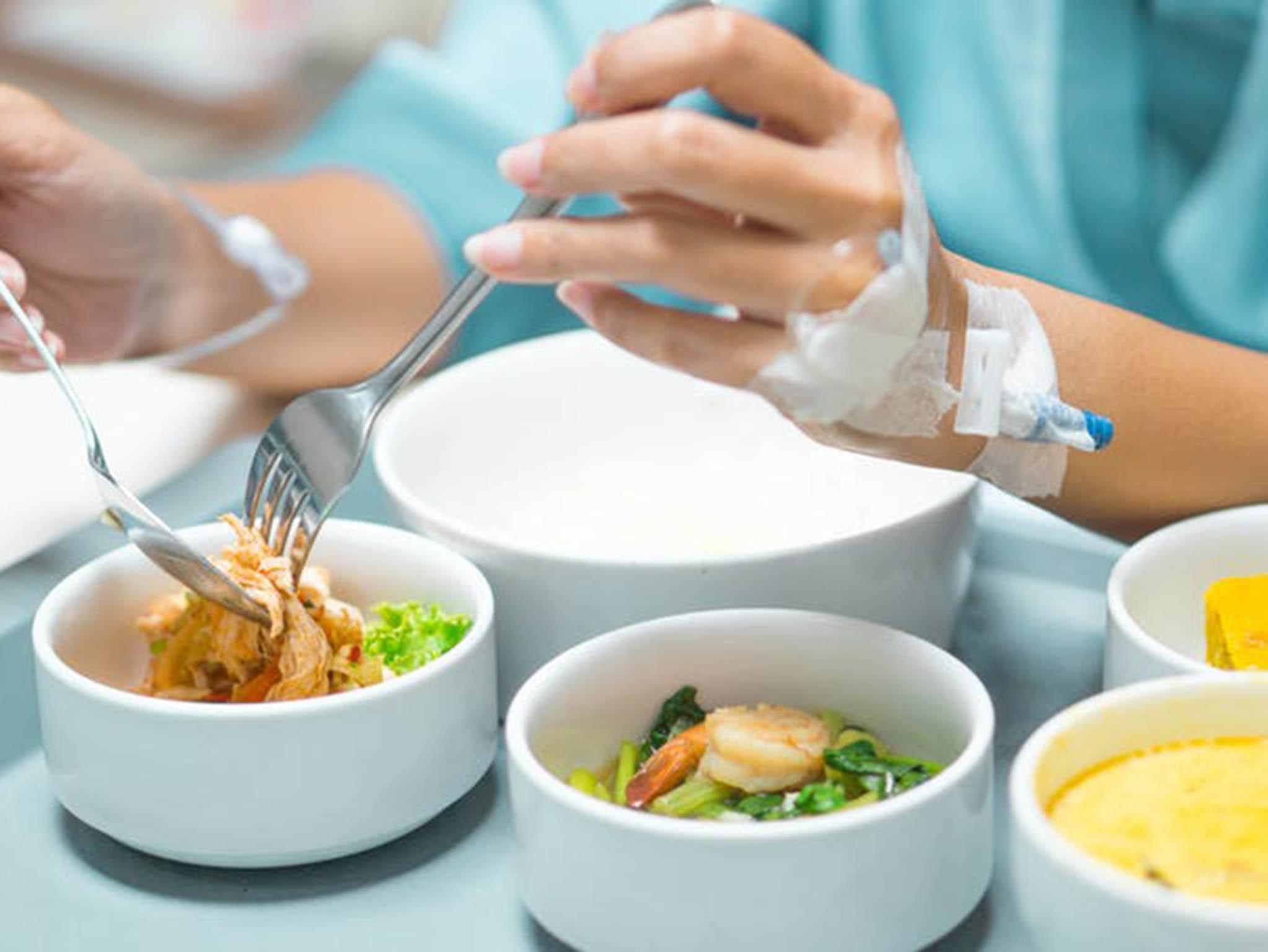Chemotherapy patients may be falling ill because they aren’t aware of the food poisoning risks
Already suffering debilitating side effects, chemotherapy patients could be made seriously ill by the food they eat

Your support helps us to tell the story
From reproductive rights to climate change to Big Tech, The Independent is on the ground when the story is developing. Whether it's investigating the financials of Elon Musk's pro-Trump PAC or producing our latest documentary, 'The A Word', which shines a light on the American women fighting for reproductive rights, we know how important it is to parse out the facts from the messaging.
At such a critical moment in US history, we need reporters on the ground. Your donation allows us to keep sending journalists to speak to both sides of the story.
The Independent is trusted by Americans across the entire political spectrum. And unlike many other quality news outlets, we choose not to lock Americans out of our reporting and analysis with paywalls. We believe quality journalism should be available to everyone, paid for by those who can afford it.
Your support makes all the difference.Whether knowingly or not, even the healthiest eaters may not follow the best food safety practices. Advice on how to properly handle and store food, for example, is not always adhered to, which can lead to serious illnesses. Eating nutritious food alone is not enough to keep your body at its optimum. Food needs to be safe, too – particularly if you have a compromised immune system.
Chemotherapy treatment can reduce immune function and the body’s ability to defend against opportunistic pathogens. It is well documented that people undergoing chemotherapy are at an increased risk of infection, including those transmitted via food. In fact, food poisoning like campylobacteriosis, listeriosis and salmonellosis are more prevalent among cancer patients.
This is not just about suffering through a tummy bug. People who are already undergoing the gruelling side effects of chemotherapy can be made seriously ill simply because the food they are eating isn’t being handled properly at home. Added to that is the fact that food borne infection could cause delays in treatment, and potentially increase patient mortality.
But the problem is not down to patients’ laziness. In our newly published research, we have found that they are not being given consistent information, nor do they recognise the serious risks that food can pose.
Health and eating
In our study, we investigated the availability and adequacy of food safety information available to UK cancer patients. We looked at online food-related resources, and conducted in-depth interviews with patients and their families on their food experiences during chemotherapy treatment.
Although some food safety information exists for chemotherapy patients, their access to it is limited. In total, we found just 45 resources online that related to food safety. These included 35 from the 154 NHS chemotherapy providers in England, Scotland and Wales, the Department of Health, and three from 184 identified UK cancer charities.
Looking at the content, 67 per cent of the food-related information resources we identified included food safety advice – for example, “ensure eggs are thoroughly cooked”. Guidance on hand decontamination routines, such as hand washing, was most frequently included (49 per cent). But information on how to reduce the risk of listeriosis, or safe alternatives to particular foods – such as unpasteurised dairy products, and raw or under-cooked meat – were lacking.
Most worryingly, we found that some of the online advice actually promoted potentially unsafe practices. For example, some suggested eating lukewarm food, when this temperature range can encourage bacteria growth.
The most comprehensive food safety resources that we found were tailored to the needs of neutropenic patients – those that have very low levels of white blood cells – but these are unlikely to be given to, or accessed by, all people undergoing chemotherapy.
Low priority
When we spoke to the patients themselves, we found that, for them, food safety was not a priority to reduce the risk of illness. Many were aware of the increased risk of infection due to immunosuppression – and so were careful to avoid crowded spaces, or public transport – but underestimated the risk of food borne infections.
Worryingly, the majority of patients we spoke to reported that they could not recall receiving food safety advice prior to or during chemotherapy treatment. A few suggested if information had been provided, they might not have paid attention to it due to “bigger concerns” – like not being able to cook or eat due to the side effects of treatment.
All in all, there is clearly a lack of consistent, correct and credible information on the critical importance of food safety for chemotherapy patients. Standardised resources for them and family caregivers are absolutely essential if we are to help reduce the additional burden of ill health among chemotherapy patients.
Ellen W Evans is a junior research fellow at Cardiff Metropolitan University. This article first appeared on The Conversation (theconversation.com)
Join our commenting forum
Join thought-provoking conversations, follow other Independent readers and see their replies
Comments